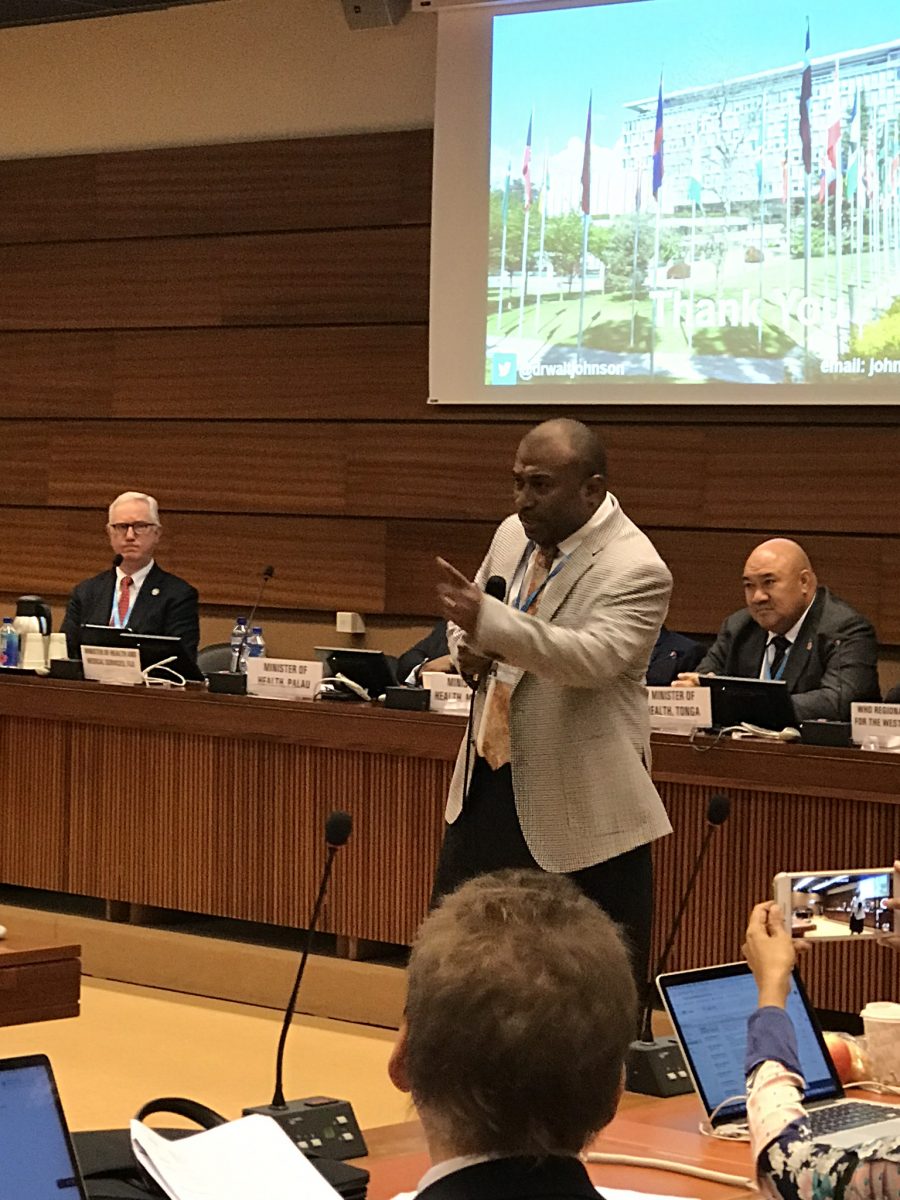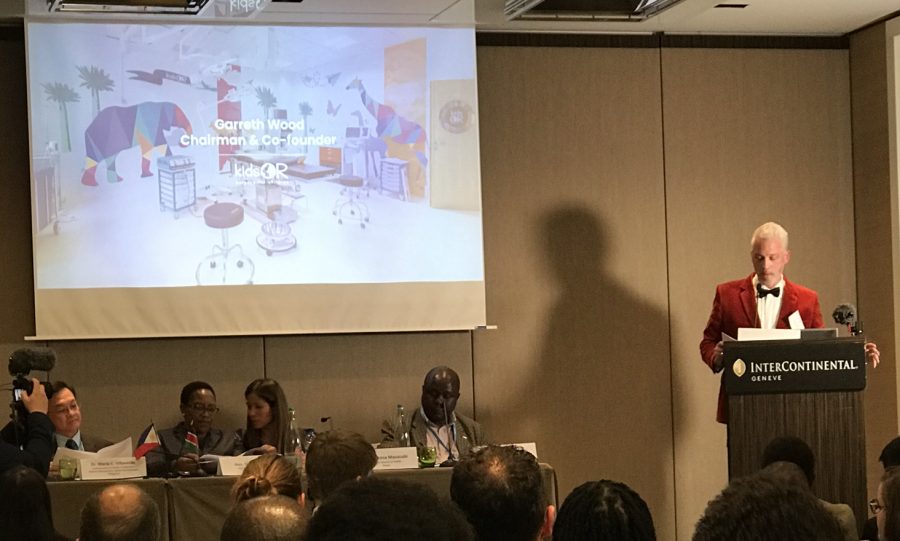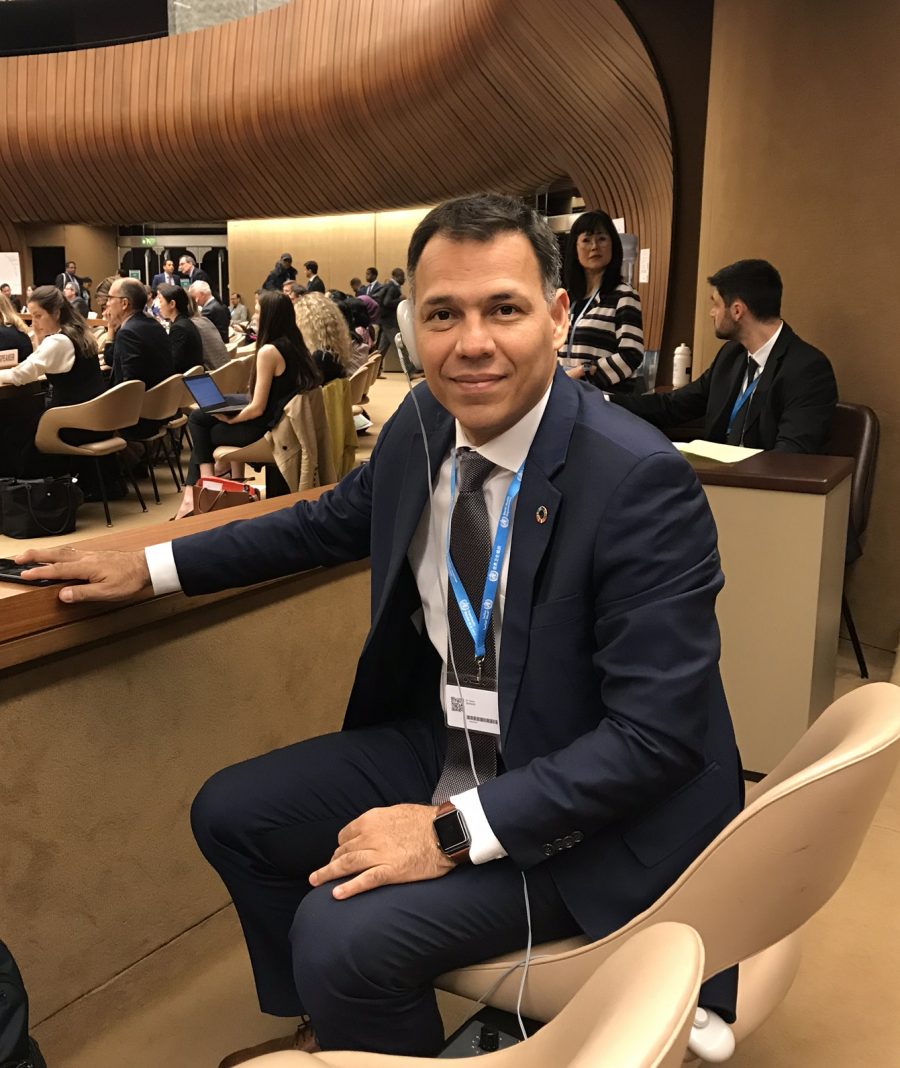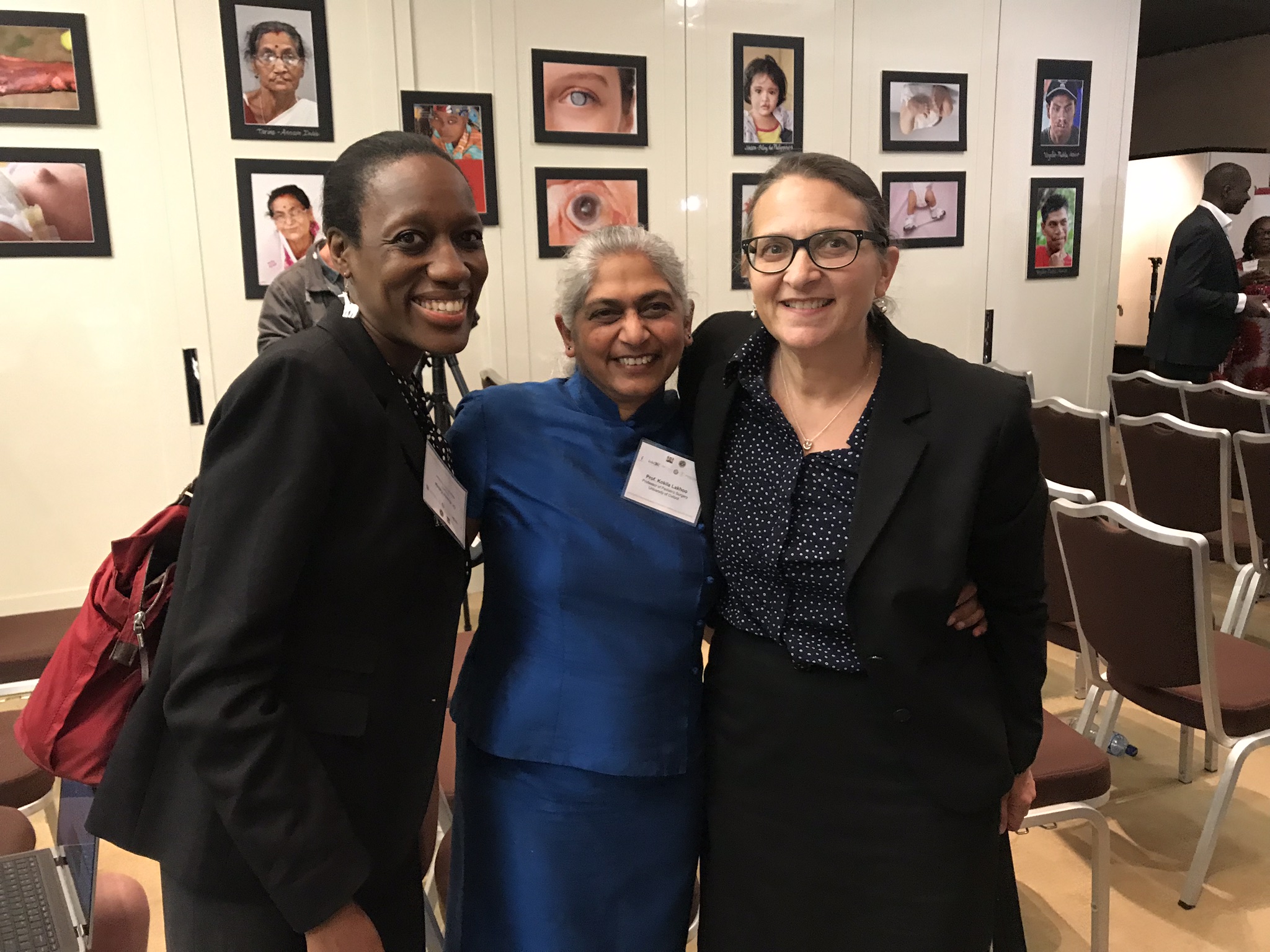
Global Surgery and Anesthesia gain momentum at the World Health Assembly
As in previous years, I had the privilege of representing Lifebox at the WHA as a member of the delegation sent by our founding partner, the World Federation of Societies of Anaesthesiologists (WFSA).
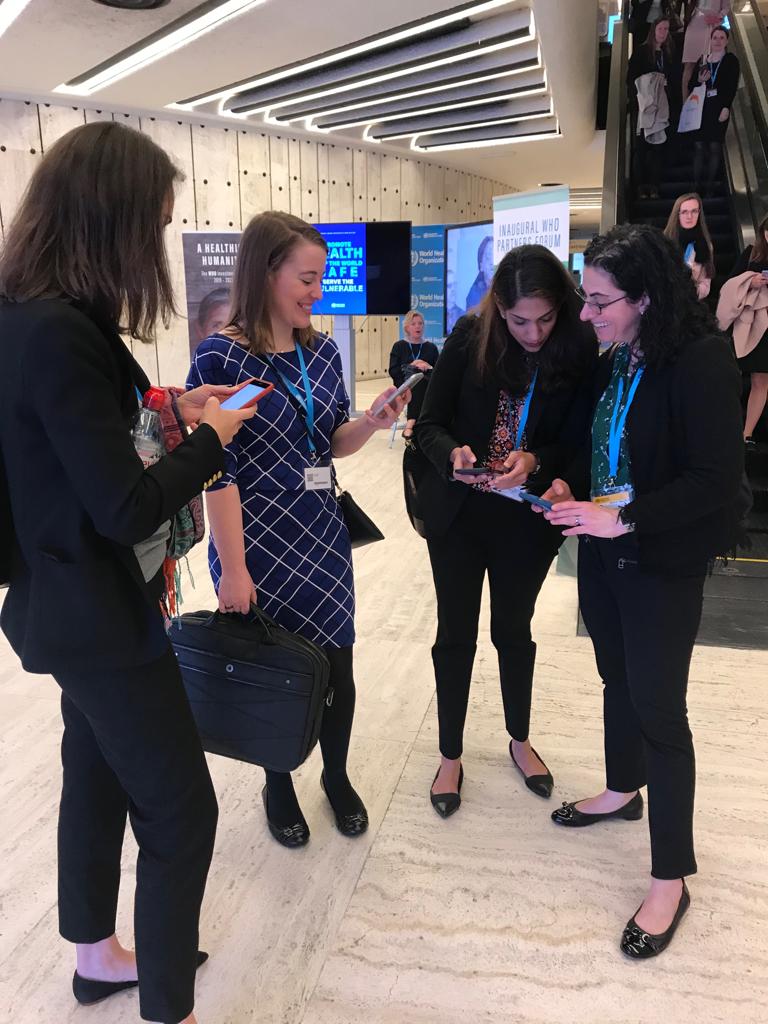
Lifebox trustee and Smile Train board member Faye Evans (far right) with colleagues at the 2019 WHA. ©Lifebox/Kris Torgeson 2019
This year, I attended the WHA along with Lifebox board member, Dr. Faye Evans, who joined the WFSA delegation. Faye, an anesthesiologist at Boston’s Children’s Hospital and on the faculty of Harvard Medical School, serves on Smile Train’s Medical Advisory Board.
At the WHA, safe surgery and anesthesia really gained momentum, urgency, and visibility.
A few of the highlights to note:
- In his opening address, Dr. Tedros Adhanom Ghebreyesus, Director-General of the WHO, spoke of the importance of achieving Universal Health Coverage (UHC) as a cornerstone of the WHO’s work.
- Keynote speaker, Dr. Richard Horton, editor-in-chief of The Lancet, received a flood of support on social media when he made an impassioned call for investment in safe surgery and anesthesia as a “top 5” response to a question he posed to colleagues: “If you had 10 minutes to speak to 194 members states at the World Health Assembly, what would you say?”
- “There is no universal health coverage without access to safe surgery and anesthesia!” asserted Dr. Ifereimi Waqainabete, Minister of Health of Fiji

Dr. Ifereimi Waqainabete gives an impassioned speech on the need for safer surgery globally. ©Lifebox/Kris Torgeson 2019
and a surgeon himself, as he joined fellow Pacific Island health ministers at an official side event demanding action on National Surgical Obstetric and Anesthesia Plans (NSOAPs), chaired by Dr. Takeshi Kasai, regional director of the WHO Western Pacific Regional Office.
- Smile Train’s Erin Steiber, on behalf of The G4 Alliance, the global coalition advocating for increased action on surgical, obstetric, and anesthesia, delivered an impassioned statement on the need to invest in and report on implementation of 2016 WHA Resolution 68.15 on Strengthening Emergency and Essential Surgical Care.
- Members of Harvard’s Program in Global Surgery and Social Change (PGSSC) played an important role in getting the word out about progress on implementation of Resolution 68.15 and their work with health ministries to develop National Surgical Obstetric and Anesthesia Plans (NSOAPs). PGSSC’s Dr. Kee Park noted that the 16 member states of SADC (Southern African Development Community) committed to completing strategic plans to scale up surgical care in 2019.
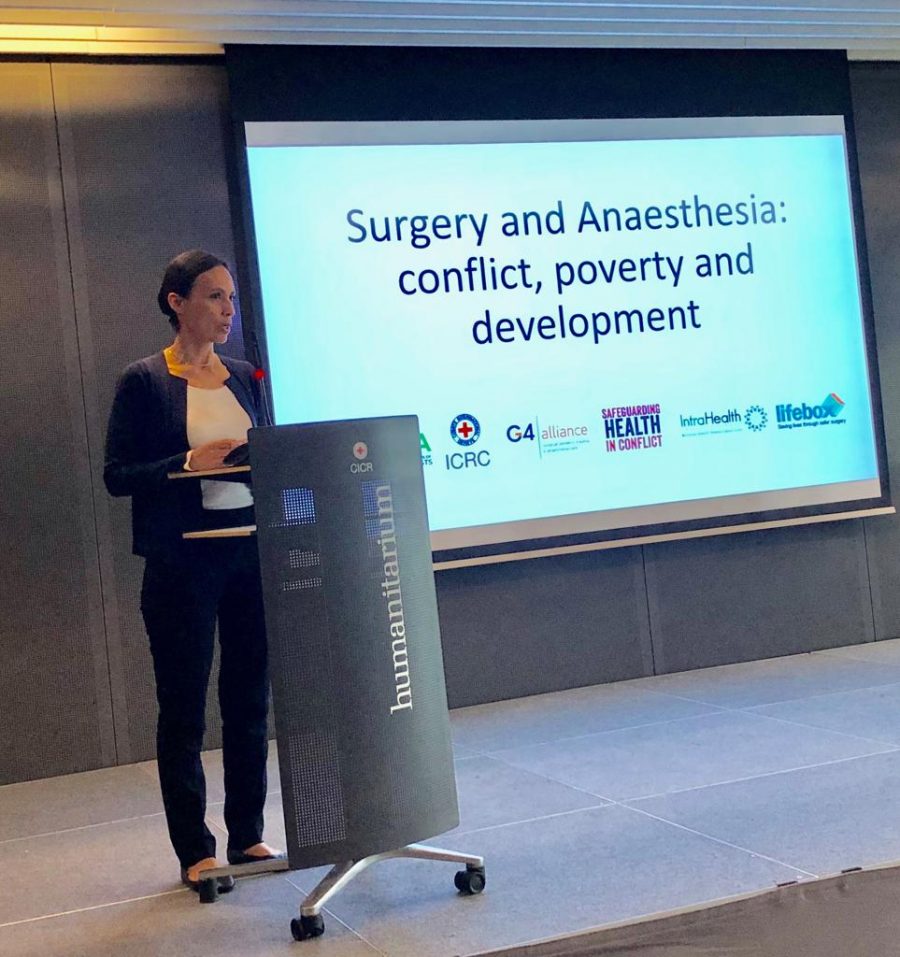
ICRC’s head of health, Esperanza Martinez presents at the WFSA side event on Surgery and Anaesthesia in times of conflict and poverty. ©Lifebox/Kris Torgeson 2019
- Lifebox joined the WFSA, the International Committee of the Red Cross (ICRC), the G4 Alliance, and IntraHealth to sponsor “Surgery and Anesthesia: conflict, poverty and development” – a side event held during the WHA week at the beautiful Red Cross museum across the street from the United Nations building in Geneva. Among others, health ministers of Kenya and Vietnam spoke eloquently about the need to invest in surgical care in their countries. Dr. Esperanza Martinez, the head of health at the ICRC, spoke of the need to develop all members of the surgical workforce, including nursing, psychosocial support, anesthesia, and rehabilitation – and ensure that healthcare workers are protected.
- The G4 Alliance (a global coalition working for safe surgery, anesthesia and obstetrics), Kids Operating Room, Smile Train, WACS
and COSECSA as well as the ministries of health from Kenya, the Gambia, and other countries held an evening event to highlight progress being made to improve surgery and anesthesia care. Gareth Wood, co-founder of Kids OR, presented their action plan for building 120 new pediatric operating rooms around the world and supporting training and advocacy.
- Throughout the week, the WFSA presented statements during the official proceedings of the WHA on the need for investment in safe surgery and anesthesia. SCARE (Colombian Society of Anesthesia) chair Dr. Mauricio Vasco along with Dr. Wayne Morriss and Dr. Adrian Gelb of WFSA and WFSA president Dr Jannicke Mellin-Olson, all made official contributions to the WHA.
- As the WHA came to a close, Dr. Walt Johnson, WHO lead on Emergency and Essential Surgical Care, held an annual all-day meeting on global surgery. This year, one could feel the huge traction that global surgery is beginning to gain within the global health community. Several ministers of health, as well as heads of UN agencies from nursing, emergency services, and patient safety, stressed the importance of investing in surgery and anesthesia to achieve Universal Health Coverage.
Energy and engagement around global surgery and anesthesia were high at this year’s WHA. Countries are developing and investing in national surgical plans and non-governmental organizations are working on effective programs for implementing these plans, and the UN is prioritizing this issue on its agenda. What we need now is for a cadre of catalyst funders – states, foundations, and private individuals – to recognize that investment in access to safe surgery and anesthesia will have a massive impact on the lives of millions of people around the world.


